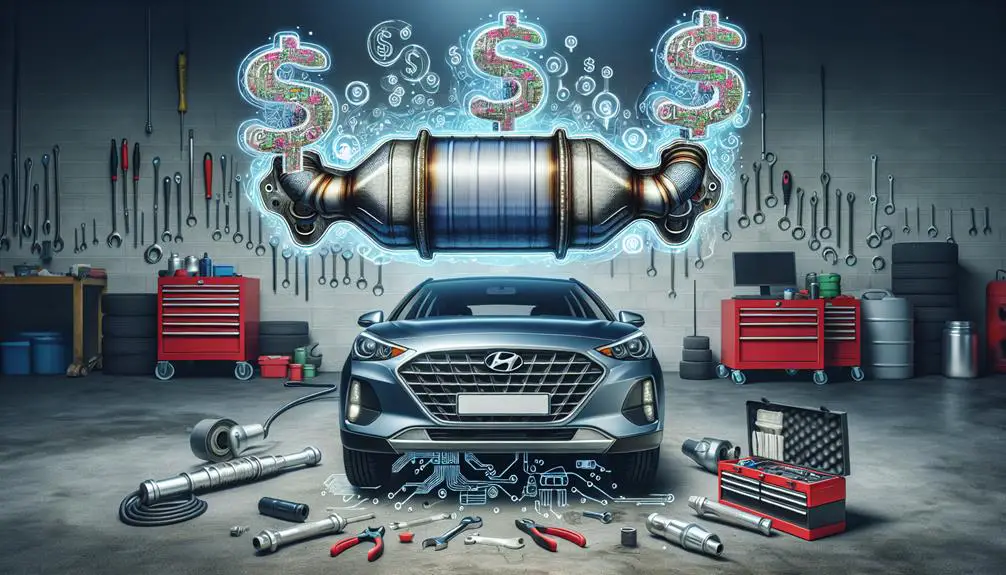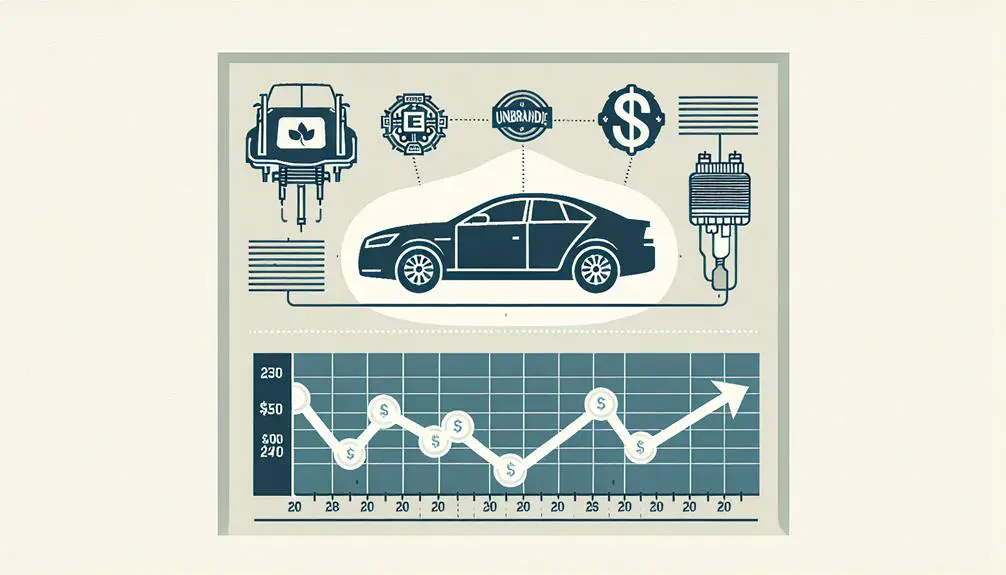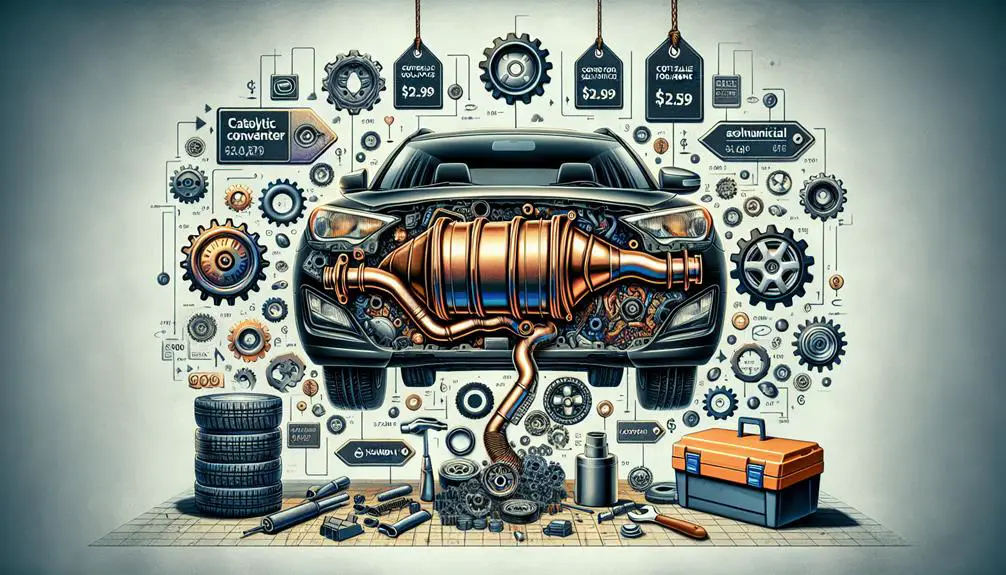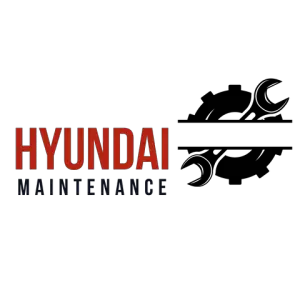The price of Hyundai catalytic converters has fluctuated significantly due to factors like precious metals market volatility and theft rates.
These converters contain valuable metals like platinum, palladium, and rhodium, making them a target for thieves seeking to extract and sell these metals for profit.
This has led to an increase in thefts of catalytic converters from Hyundai vehicles, driving up prices for replacements and repairs.
Understanding Catalytic Converters

A catalyst converter is an essential component in your vehicle, converting harmful emissions into less toxic substances before they're released into the environment. Found in the exhaust system of your Hyundai, it plays a key role in your car's emission control system. Essentially, it's your vehicle's way of contributing to cleaner air, making it an indispensable part of your car.
You might wonder how it works. Well, when your engine burns fuel, it produces gases like carbon monoxide, hydrocarbons, and nitrogen oxides, which are harmful to the environment. Your catalyst converter tackles these pollutants through a chemical reaction, transforming them into harmless nitrogen, carbon dioxide, and water vapor. This process involves precious metals like platinum, palladium, and rhodium, which serve as catalysts. These metals aren't consumed in the process; they merely facilitate the reaction.
Understanding the importance and function of your catalyst converter can help you appreciate why keeping it in good working order is crucial. Not only does it reduce your car's environmental impact, but it's also a legal requirement in many places to have a functioning catalyst converter to pass emissions testing. So, taking care of it isn't just about following the law; it's about contributing to a healthier planet.
Factors Influencing Prices
Comprehending the role and significance of your Hyundai's catalytic converter sets the stage for exploring what influences their market prices. It's not just about the device's ability to reduce emissions; several factors play a pivotal role in determining how much you'll need to shell out for a new one. Let's delve into the elements that sway the cost:
- Precious Metal Content: Catalytic converters contain precious metals like platinum, palladium, and rhodium. The market value of these metals can cause the price of converters to fluctuate significantly. When their prices soar, so does the cost of your Hyundai's catalytic converter.
- Make and Model Specificity: Not all Hyundais are created equal when it comes to their catalytic converters. Some models require more complex or larger converters, directly impacting the price. A high-performance sports model may have a pricier converter than a compact sedan due to these differences.
- Regulatory Standards: Emission standards are getting stricter worldwide, necessitating more advanced and hence more expensive catalytic converters. As regulations evolve, the technology in these converters must keep pace, which can hike up their prices.
Comprehending these factors can help you navigate the market more effectively, ensuring you're informed before making a purchase.
Average Costs Explained

Comprehending the factors that influence the price of your Hyundai's catalytic converter, you're likely wondering what you'll actually need to pay for one. The answer isn't as straightforward as you might hope, ensure to the wide range of Hyundai models and the varying cost of parts and labor. However, you can expect the average price to be between $950 and $2500. This broad range accounts for both aftermarket options and OEM (Original Equipment Manufacturer) parts, with the latter typically being pricier.
The model of your Hyundai plays a significant role in determining the cost. Higher-end models or those with more complex exhaust systems might lean towards the upper end of the price spectrum. Labor costs also fluctuate based on your location and the mechanic's rates, adding to the overall expense.
You might find lower prices by shopping around or opting for aftermarket parts, but it's ensure to invest in a high-quality catalytic converter not only helps your Hyundai run smoother but ensure contributes to environmental protection by reducing toxic emissions.
Theft Impact on Pricing
While grasping the factors affecting the price of your Hyundai's catalytic converter, it's also important to consider how theft influences these costs. With the rise in thefts, you're not just facing the inconvenience of replacement but also the financial impact that follows. Here's how theft directly impacts pricing:
- Increased Demand: As thefts rise, so does the demand for replacements. This surge often leads to higher prices due to the basic economic principle of supply and demand.
- Insurance Premiums: If you're claiming the theft on your insurance, you might see a spike in your premiums. Insurance companies adjust rates based on risk, and frequent claims can categorize your vehicle as a higher risk.
- Installation Costs: Beyond just the converter, theft often results in damaged sensors and wiring. This means higher labor costs for installation and potential repairs, driving up the overall expense.
Theft doesn't just mean replacing a stolen part; it's a domino effect that hits your wallet in several ways. Understanding this impact helps you appreciate why securing your catalytic converter is more important than ever.
Cost-Effective Replacement Tips

Considering the financial burden catalytic converter theft imposes, it's important to investigate cost-effective replacement strategies that can save you money. To start, you should consider aftermarket parts. These components often match the quality of original equipment but come at a fraction of the price. Just make sure they meet your vehicle's specifications and emission standards.
Another tip is to shop around. Don't settle for the initial quote you receive. Prices can vary greatly between repair shops and dealerships. Use online platforms to compare prices and read reviews to find a reputable service provider offering competitive rates.
You might also want to look into insurance coverage. If you have full coverage, it may cover the cost of replacing your stolen catalytic converter. Check your policy details and consider filing a claim to offset the expense.
Conclusion
In wrapping up, it's clear that several factors, from material costs to theft rates, greatly affect Hyundai catalytic converter prices.
On average, you're looking at a substantial outlay, but it doesn't have to cost a fortune. By shopping wisely, considering aftermarket options, and maybe investing in anti-theft devices, you can manage these costs more effectively.
Remember, comprehending what drives prices gives you the upper hand in finding a cost-effective solution that keeps your Hyundai running smoothly and cleanly.
